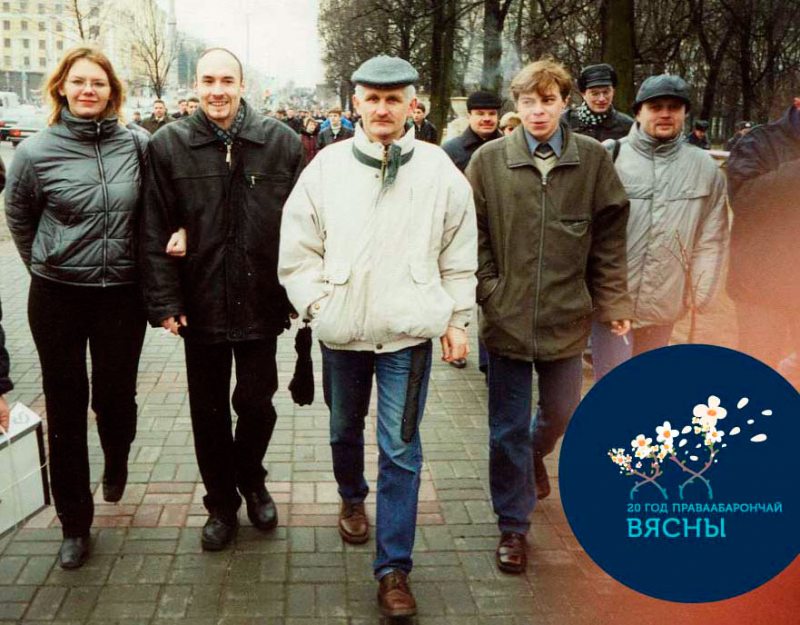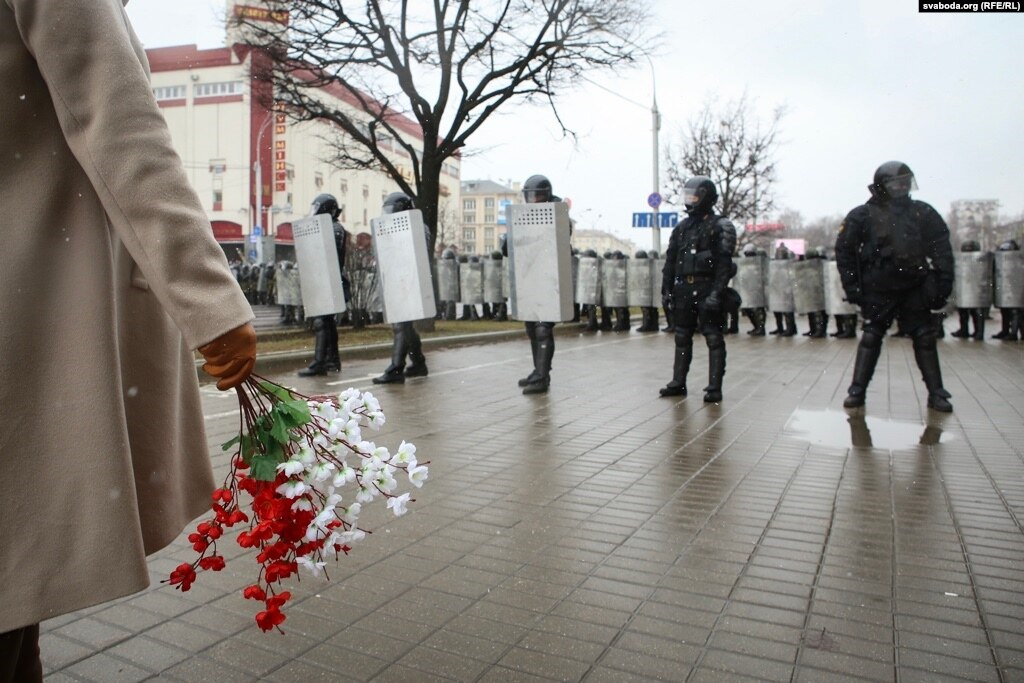Freedom Day in shackles. Why March 25 is a special day for human rights defenders
Freedom Day, March 25, has always been and remains a special day for Belarusian human rights defenders. And first of all, as an important historical landmark.
In early January 1918, the Bolsheviks disbanded the Constituent All-Belarusian Congress. They dealt a severe blow to the people's will, to democracy, and led to a communist dictatorship. Many prominent national and public figures were thrown behind bars, many left for other countries, some went deep into hiding. It was not until March 25 that the Congress adopted the Third Charter, which stated:
“From now on, the Belarusian People's Republic has been proclaimed an independent and free state.”
And what about the present days?
Chairman of the Council of the Belarusian People's Republic (BPR) Ivonka Survila addressed the Belarusians today on the occasion of the 104th anniversary of the proclamation of the BPR’s independence. She referred to the restoration of independence in the early 1990s:
“After the Bolsheviks took away our state from us again, we fought for 70 years to restore it. And we restored it. On August 25, 1991, the independence of the Republic of Belarus was proclaimed.”
Not for long, unfortunately. The dictatorship resumed in Belarus. And that is why in April 1996, during the mass protests of the democratic opposition in Belarus, the Human Rights Center Viasna (Viasna-96 at that time) was established.

- Viasna members Alina and Valiantsin Stefanovich, Ales Bialiatski, Uladzimir Labkovich, Yuryi Novikau, and Yuryi Chavusau 20 years ago at a rally on the Freedom Day
For Viasna human rights defenders Freedom Day means not only celebrating. With few exceptions, in modern Belarus, March 25 has also been a day of detentions, arrests, and brutal dispersals of peaceful citizens. On this day, Viasna becomes a gathering point for information from all over the country about human rights violations; lawyers, volunteers, and journalists are hard at work. Viasna members who monitored peaceful rallies were often among those arrested on that day.
Today, human rights defenders, our colleagues, are thrown in jails, some are convicted for their legal human rights activities, some have been forced to leave their homeland because of criminal prosecution.
Ales Bialiatski, chairman of Viasna, Valiantsin Stefanovich, deputy chairman, and Uladzimir Labkovich, a lawyer, have been in jail for more than 250 days. Marfa Rabkova, the coordinator of the Viasna volunteer service, has been kept behind bars for 550 days now, and volunteer Andrej Čapiuk for 535 days.
Leanid Sudalenka, head of Viasna’s branch in Homieĺ, and Tatsiana Lasitsa, a volunteer, were sentenced to three years and two and a half years in prison, respectively.
On this day a year ago, Ales Bialiatski in an interview described the importance of this memorable day for Belarusians:
“I am convinced that Freedom Day on March 25 has always been a “red rag” for the illegitimate head of state. Since 1994, most of the actions on March 25th have always involved arrests and dispersals. I was arrested, too. It's all there in our history. […] Today's authorities regard Freedom Day as a direct threat to their ‘Stalinist-Soviet heritage’. They see their origins in the Soviet Socialist Republic and the Communists, who actually wiped out the Belarusian People's Republic. And they severely limited our independence, practically destroyed it, which later led to mass repressions. Hundreds of thousands of murdered Belarusians are on the conscience of the communist authorities of that time. And today's government in Belarus is their direct successor. Nevertheless, the holiday remains and it is celebrated in different ways and in different conditions.”
This year's Freedom Day has taken on a special meaning. Russia has started a war in independent Ukraine, which is bravely resisting this invasion. And the vast majority of Belarusians are on its side. Because independent Ukraine means a chance for the Belarusians also to become a free people, to realize the ideals and aspirations declared by the Belarusian People's Republic.


















